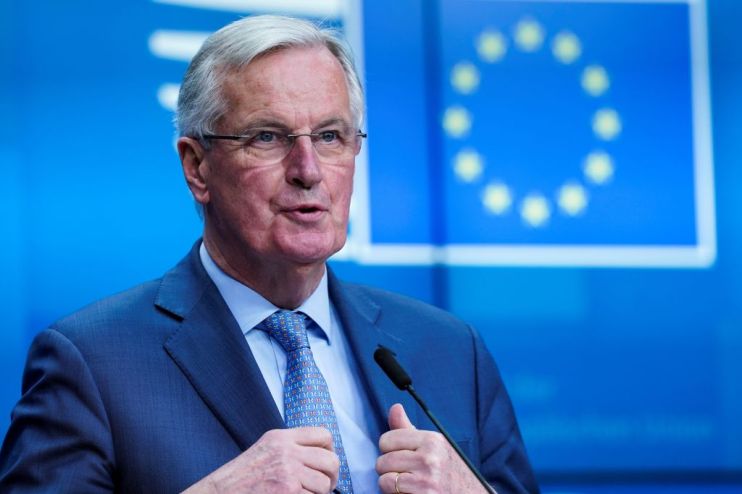Brexit: EU calls Downing Street’s bluff on standards

Brussels accepts Downing Street’s pledge not to cut red tape in a bid to become “some sort of Singapore-on-Thames” – but there must still be common “ground rules” in order to strike a trade deal, Michel Barnier has said.
In a shift away from increasingly hostile briefings ahead of talks next week, the EU’s chief negotiator said he was “ready to believe” Boris Johnson’s assurances that the UK “would never engage to a race to the bottom, that it would not seek to undermine European standards, that the UK would, in fact, maintain higher standards than the EU”.
Speaking at a Designing Europe lecture at the ESCP business school, Barnier instead appeared to call Johnson’s bluff.
Read more: Government to prioritise sovereignty over business continuity in trade talks
“I do not believe that the UK will become some sort of Singapore-on-Thames,” he said. “What that means is it should not be a problem for the UK to agree on a number of ground rules.
And I want to be very, very clear.
“We understand that the UK wants its own rule book. We respect that choice, the UK’s sovereign choice. That was the whole point of leaving the EU.”
Brussels will give the UK “super-preferential access to our markets – a level of access that would be unprecedented for a third country”, Barnier said.
But this would not be possible without “firm guarantees that the UK will respect the level-playing field and avoid unfair competitive advantage”.
Read more: EU keeps demands on level-playing field as it publishes mandate ahead of trade talks
“We want competition in future but it must be fair – fair and free,” he said. The level-playing field rules would ensure that “somewhere down the road, perhaps in years to come, neither side will use unfair subsidies, nor grant derogations on industrial emissions or on labour standards to win industries from the other”.
And he stressed there was “no single template” for a trade deal, rejecting the idea that the UK could have a Canada-style trade deal because “the problem with that is the UK is not Canada”.
Barnier also noted that “whatever the outcome of the negotiation, there will be checks and controls on all UK goods entering the Single Market as there are for any third country” – making it clear the Irish border issue has not gone away.
“We cannot take the risk that the UK becomes a kind of assembly hub for goods from all over the world, allowing them to enter the single market as British goods,” Barnier said.
The Getty Image will be here